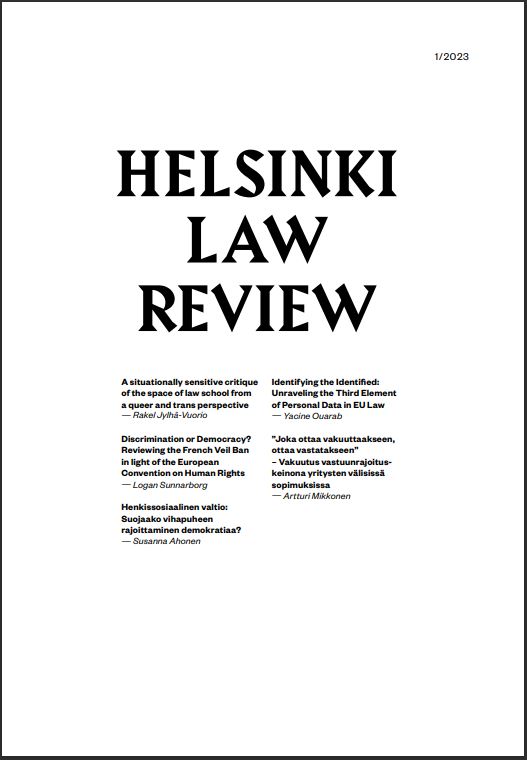Henkissosiaalinen valtio: suojaako vihapuheen rajoittaminen demokratiaa?
DOI:
https://doi.org/10.33344/vol17iss1pp56-63Avainsanat:
vihapuhe, rasismi, oikeusteoria, Montesquieu, hate speech, racism, legal theory, restrictions of rights, perusoikeuksien rajoittaminenAbstrakti
A wayfarer once told about his childhood: “I grew up wandering in a horse carriage. Life was dangerous, my family was persecuted and discriminated. My father had to protect his children and keep a discipline. We had physical limits, but mentally we were free.”
What is the difference between mental and physical limits? How does one categorize restrictions on freedom of speech, such as prohibiting hate speech? Are these restrictions mental, physical, or perhaps social? It is settled that law as a system is socio-mental by its nature, but freedom of speech is socio-mental also by its substance. How do socio-mental restrictions then fit our modern democratic model?
The philosophical frame of reference of the article consists of enlightenment era literature on European democratic models, especially Montesquieu’s The Spirit of Law. It is concluded that in democracy’s struggle for existence, it may not be most useful to restrict hate speech as a crime. Democratic conversation could be improved in other ways, such as including minorities in public discussion.



